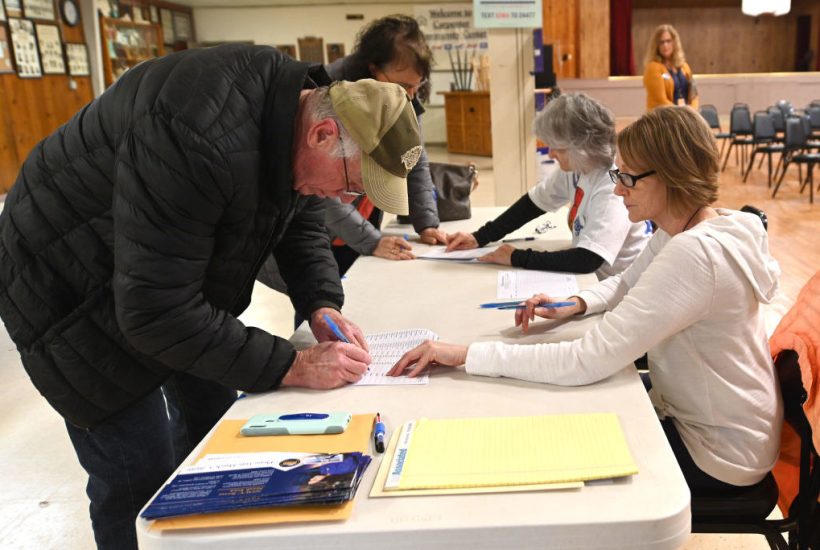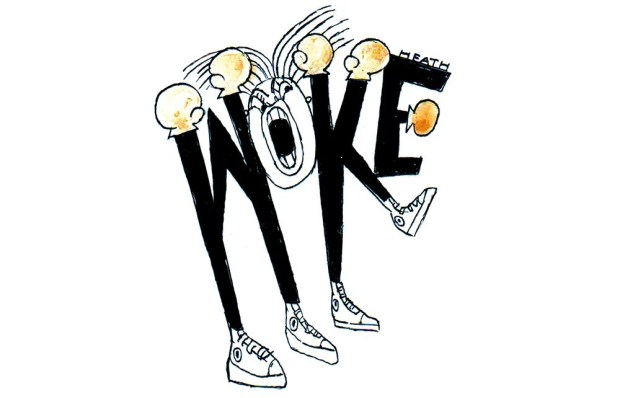The Monday night caucuses were the biggest moment in four years for Iowa Democratic Party. They screwed it up beyond belief. They had one task: to produce timely, accurate, and reliable vote totals, and they failed completely. TV anchors sat around filling time, waiting for Godot to show up with election returns. None appeared. The candidates themselves began flying off to New Hampshire for next week’s primary.
It was a fiasco, a huge embarrassment not only for state officials but for the national party. It denied the winners their big moment before the TV cameras on election night—and the fundraising bonus that goes with it. It left the losers wondering if they’ve been robbed. It left Iowans questioning whether they will ever hold caucuses again or keep their prime spot as first-in-the-nation. The bitterness over this mess will linger, and the Republicans will exploit it.
To begin with, this failure makes the Democratic Party look ridiculous. The damage is compounded because they are the “party of government.” That’s their brand, and it been since Franklin Roosevelt proposed the New Deal. Democratic policies almost always call for more government, run from Washington. When people point to social or economic problems, Democrats reflexively respond with laws, regulations, and bureaucracies to tackle them (and taxes to pay for them). That prospect looks a lot less appealing when you can’t count the votes in a high school gym. It doesn’t encourage people to say, “These are just the people to handle my healthcare.”
Second, Bernie’s voters came into the caucuses (a) thinking they would win, and (b) not trusting the party apparatchiks to give them a fair shake. This mess deepens those fears. If they don’t come away victorious, many Sanders supporters will think they were cheated. That’s a problem for Democrats, who need a united party to win in November. The fiasco in Iowa only deepens the mistrust between Bernie’s supporters and the party’s traditional center-left. It was already deep, and “mistrust” may be too mild a word.
Third, the confusion over vote-counting in Iowa underscores a larger, more ominous problem: Americans’ declining confidence in the integrity of their elections and the legitimacy of the winners. For democracy to flourish, voters must believe elections are fair and the winners honestly chosen. The public’s growing skepticism is fed by party leaders who refuse to accept defeat graciously. That’s more than simple courtesy. It is the foundation for the peaceful transfer of power between opposing parties, democracy’s great achievement. That transfer requires that the losers publicly acknowledge the winners’ legitimacy.
In recent years, losers have grown more reluctant to do that. At a 2016 Republican presidential debate, a moderator asked the candidates if they would accept the results if they lost. It was troubling enough that the question needed to be asked. It was more troubling that Donald Trump didn’t immediately say “yes.” (He did later.) Unfortunately, nobody asked the Democratic candidates. They should have.
The Democrats’ refusal to accept the 2016 results has been the leitmotif of the entire Trump presidency. Hillary Clinton has never accepted her loss. She has never given a full-throated acknowledgment that Trump was honestly elected. Her party seems to agree. It was why they pressed for the Mueller investigation. Dissatisfied with those findings, Adam Schiff is now making the same argument about the coming election. Unless we remove Trump immediately, he told the Senate trial, he might steal the 2020 election. That’s nothing more than a dangerous slur unless he provides supporting evidence. He hasn’t. But it’s the thought that counts, and it’s a malicious thought. Still, it does highlight the crucial importance of fair elections and reliable results. What happened in Iowa doesn’t help.
Monday night’s Iowa Caucuses were a mess, a debacle, a failure, a fiasco . . . a Dead Parrot. They made the Democratic Party look incompetent, stole the spotlight from the winners, deepened the rift between Bernie Sanders and party regulars, and further eroded public trust in election integrity. It’s hard to image a worse way to begin the primary season.
––––––––––––––––––––
Charles Lipson is the Peter B. Ritzma Professor of Political Science Emeritus at the University of Chicago, where he founded the Program on International Politics, Economics, and Security. He can be reached at charles.lipson@gmail.com
See the full story of Why the Iowa voting fiasco matters on Spectator USA.
Got something to add? Join the discussion and comment below.
Get 10 issues for just $10
Subscribe to The Spectator Australia today for the next 10 magazine issues, plus full online access, for just $10.





















Comments
Don't miss out
Join the conversation with other Spectator Australia readers. Subscribe to leave a comment.
SUBSCRIBEAlready a subscriber? Log in